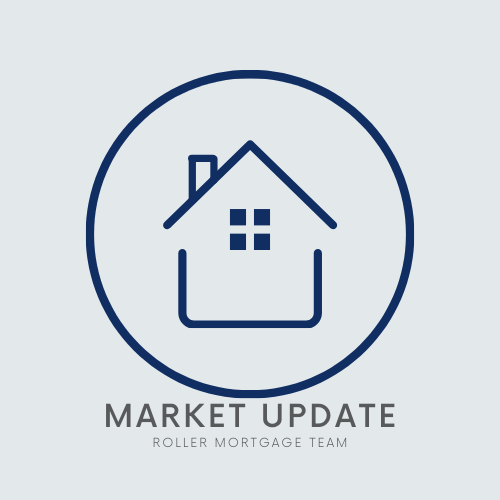Are you a senior homeowner who wants to explore the possibilities of leveraging your home equity? Reverse mortgages can be an excellent option for you! In this comprehensive guide, we will take a closer look at the types of Reverse Mortgages available to homeowners like you. Buckle up and get ready to dive into the world of reverse mortgages with a touch of humor!
Understanding the Power of Reverse Mortgages
Owning a home has its perks, and one of them is the ability to tap into the equity you’ve built over the years. Reverse mortgages provide senior homeowners with an opportunity to unlock the value of their homes without having to sell or move out. These financial tools allow you to receive funds in various ways, enabling you to enhance your retirement, cover medical expenses, or fulfill your dreams.
Types of Reverse Mortgages
When it comes to reverse mortgages, there are different options available to suit your unique needs. Let’s take a closer look at each type:
1. Home Equity Conversion Mortgage (HECM)
The Home Equity Conversion Mortgage (HECM) is the most prevalent and well-known type of reverse mortgage. Insured by the Federal Housing Administration (FHA) and regulated by the Department of Housing and Urban Development (HUD), HECMs provide senior homeowners with a range of benefits and options. Let’s delve deeper into what makes HECMs stand out:
Flexibility and Eligibility
HECMs offer flexibility, making them suitable for a wide range of seniors aged 62 and older. Whether you own your home outright or have a small existing mortgage, you can still qualify for an HECM. The amount you can borrow is determined by factors such as your age, the appraised value of your home, and current interest rates.
Loan Disbursement Options
HECMs provide various options for receiving your loan funds. You can opt for a lump sum payment to cover large expenses or choose a line of credit that allows you to access funds as needed. Additionally, HECMs offer monthly installments, providing a steady stream of income during your retirement.
Repayment and Repayment Protection
One significant advantage of HECMs is that you don’t have to repay the loan as long as you live in your home as your primary residence. The loan becomes due when you sell the property, move out, or pass away. It’s important to note that your heirs have the option to repay the loan balance and keep the home or sell the property to settle the debt.
2. Proprietary Reverse Mortgages
Proprietary reverse mortgages, also known as jumbo reverse mortgages, are an alternative to HECMs for homeowners with higher-valued properties. These mortgages are privately insured and not subject to the same regulations as HECMs, allowing for potentially higher loan amounts. Here’s what you need to know about proprietary reverse mortgages:
Loan Amounts and Qualification
Proprietary reverse mortgages cater to homeowners with substantial home equity. The loan limits for these mortgages are typically higher than those of HECMs, allowing you to access a greater portion of your home’s value. However, eligibility requirements may be more stringent, and lenders often consider factors such as credit score, income, and property value.
Flexibility in Loan Disbursement
Similar to HECMs, proprietary reverse mortgages offer flexibility in how you receive your funds. You can choose between a lump sum payment, monthly installments, or a line of credit. This flexibility allows you to customize the loan to meet your financial needs and goals.
Private Insurance and Lender Options
Since proprietary reverse mortgages are privately insured, the insurance is provided by the lender or a private insurer. This means that different lenders may have varying terms, interest rates, and fees associated with these mortgages. It’s essential to work with reputable lenders like LeaderOne Financial or the Roller Mortgage Team to ensure you understand all the details and make an informed decision.
3. Single-Purpose Reverse Mortgages
Single-purpose reverse mortgages are specialized loans offered by state and local government agencies, as well as select non-profit organizations. These mortgages are designed for specific purposes, making them a viable option for homeowners with specific needs. Here’s what you should know about single-purpose reverse mortgages:
Purpose and Eligibility Criteria
As the name suggests, single-purpose reverse mortgages are intended for particular uses, such as home renovations, property taxes, or energy-efficient upgrades. They often have lower costs compared to other reverse mortgage options, but the eligibility criteria may be more stringent. These mortgages are typically targeted towards low-to-moderate income seniors or those facing financial hardship.
Loan Disbursement and Restrictions
Single-purpose reverse mortgages provide funds to be used for the designated purpose only. The loan disbursement is typically made in a lump sum or as fixed monthly payments. It’s important to note that these mortgages may come with restrictions on how the funds can be used. For example, if you obtained a single-purpose reverse mortgage for home renovations, you would be required to use the funds specifically for that purpose.
Affordability and Availability
Single-purpose reverse mortgages are often more affordable due to lower fees and closing costs. These mortgages are offered by state and local government agencies or non-profit organizations, and their availability may vary depending on your location. It’s advisable to research the programs available in your area and consult with the relevant agencies to determine your eligibility and the specific terms and conditions.
4. Reverse Mortgage for Purchase (H4P)
The Reverse Mortgage for Purchase program, also known as H4P, is a unique option specifically designed for seniors who want to purchase a new home using a reverse mortgage. This program provides seniors with the opportunity to downsize, relocate, or move closer to family while benefiting from the advantages of a reverse mortgage. Let’s explore the key features of the Reverse Mortgage for Purchase program:
Home Purchase with a Reverse Mortgage
The H4P program allows seniors to buy a new home using a reverse mortgage loan instead of traditional financing methods. This program offers a convenient way to access your home equity while simultaneously purchasing a new property that better suits your needs and lifestyle.
Financial Benefits and Eligibility
By utilizing the Reverse Mortgage for Purchase program, seniors can potentially eliminate monthly mortgage payments on their new home. The loan is typically repaid when the homeowner sells the property or no longer occupies it as their primary residence. Eligibility requirements for the H4P program are similar to those for HECMs, with the minimum age requirement being 62 years or older.
Flexibility and Housing Options
The H4P program provides flexibility in terms of the types of homes that can be purchased. Whether you’re looking for a single-family residence, condominium, or townhouse, the program allows for a range of housing options. However, it’s important to note that the property must serve as your primary residence.
Working with Lenders
When considering the Reverse Mortgage for Purchase program, it’s crucial to work with experienced lenders such as LeaderOne Financial or the Roller Mortgage Team. These professionals can guide you through the application process, explain the terms and conditions, and ensure that you make an informed decision.
5. HECM Refinance
If you already have an existing HECM loan, you may have the option to refinance it through the HECM Refinance program. Refinancing your HECM can offer various benefits, such as accessing additional funds or taking advantage of more favorable interest rates. Let’s delve into the details of the HECM Refinance option:
Purpose and Benefits
The primary purpose of HECM refinancing is to modify the terms of your existing HECM loan to better suit your current financial situation or objectives. Refinancing can provide opportunities to access additional loan proceeds, change the loan’s interest rate structure, or benefit from increased home values.
Factors to Consider
When contemplating HECM refinancing, there are several factors to consider. These include the current interest rates, the potential increase in loan proceeds, the costs associated with refinancing, and the impact on your future loan balance and repayment obligations. Consulting with a trusted lender like LeaderOne Financial or the Roller Mortgage Team can help you navigate these considerations and determine if refinancing is the right choice for you.
Qualification and Process
To qualify for HECM refinancing, you must meet the eligibility requirements for an HECM loan. This includes being aged 62 or older, residing in the property as your primary residence, and having sufficient equity in your home. The refinancing process involves similar steps to obtaining an initial HECM loan, including counseling, application submission, and property appraisal.
Benefits of HECM Refinancing
Refinancing your HECM can offer several advantages, such as:
-
- Access to additional funds: Refinancing allows you to tap into the increased equity in your home and receive additional loan proceeds, providing you with more financial flexibility.
- Lower interest rates: If interest rates have decreased since you obtained your original HECM loan, refinancing can help you secure a lower interest rate, potentially saving you money over the long term.
- Restructuring your loan terms: Refinancing gives you the opportunity to modify the terms of your HECM loan, such as switching from an adjustable interest rate to a fixed rate or extending the loan term.
It’s important to carefully consider the costs associated with refinancing, such as closing costs and mortgage insurance premiums, and compare them to the potential benefits. A reputable lender can guide you through the process, explain all the details, and help you make an informed decision.
6. HECM for Purchase (H4P)
The HECM for Purchase (H4P) program is specifically designed for seniors who want to purchase a new home using a reverse mortgage. This option combines the benefits of a reverse mortgage with the opportunity to downsize, relocate, or move closer to loved ones. Let’s explore the key aspects of the HECM for Purchase program:
Home Purchase with a Reverse Mortgage
The HECM for Purchase program allows seniors to use a reverse mortgage to finance the purchase of a new home. It provides an alternative to traditional financing methods and can be an attractive option for those looking to transition into a new living arrangement.
Eligibility and Requirements
To qualify for the HECM for Purchase program, you must meet the same eligibility criteria as for a regular HECM loan. This includes being aged 62 or older, using the new home as your primary residence, and having sufficient funds to cover the down payment, closing costs, and other expenses.
Benefits and Flexibility
The HECM for Purchase program offers several benefits and flexibilities, including:
-
- No monthly mortgage payments: With a reverse mortgage, you are not required to make monthly mortgage payments on the new home. Instead, the loan is repaid when you sell the property or no longer use it as your primary residence.
- Increased purchasing power: The HECM for Purchase program allows you to leverage your home equity, potentially enabling you to afford a new home that better suits your needs or desires.
- Downsize or relocate: This program gives you the flexibility to downsize your living space, move to a more desirable location, or be closer to family and friends while benefiting from the advantages of a reverse mortgage.
FAQs about Reverse Mortgages
Now that we have explored the different types of reverse mortgages, let’s address some common questions that senior homeowners often have:
- Are reverse mortgages safe? Yes, reverse mortgages are safe when obtained through reputable lenders like LeaderOne Financial or the Roller Mortgage Team. It’s essential to work with experienced professionals who can guide you through the process and ensure your financial security.
- Do I still own my home with a reverse mortgage? Absolutely! With a reverse mortgage, you retain ownership of your home throughout the loan term. You continue to live in and maintain the property as your primary residence.
- What happens if I outlive the loan? If you outlive the loan, you or your heirs will have the option to sell the home and repay the loan balance or refinance it into a new mortgage. The choice is yours or your family’s.
- How much money can I get with a reverse mortgage? The amount you can receive through a reverse mortgage depends on various factors, including your age, home value, and current interest rates. A reputable lender can provide you with a personalized estimate based on your circumstances.
- Will I still have to pay property taxes and insurance? Yes, as a homeowner, you are responsible for paying property taxes and insurance. It’s crucial to budget for these expenses while enjoying the benefits of a reverse mortgage.
- Can I leave my home to my heirs with a reverse mortgage? Yes, you can still leave your home to your heirs with a reverse mortgage. They will have the option to repay the loan balance and keep the property or sell it and use the proceeds to settle the loan.
The LeaderOne Lowdown on the Types of Reverse Mortgages
Reverse mortgages offer senior homeowners a flexible and powerful financial tool to enhance their retirement and achieve their goals. By understanding the types of Reverse Mortgages, you can make informed decisions that align with your specific needs and circumstances.
Remember, working with trusted lenders like the Roller Mortgage Team can provide you with expert guidance and a smooth loan process. Whether you opt for a Home Equity Conversion Mortgage (HECM), a proprietary reverse mortgage, or another type, your home equity can become a valuable resource to support your dreams and aspirations.
So, take the time to explore the possibilities, ask questions, and reach out to experienced professionals who can help you navigate the world of reverse mortgages with confidence. Your home holds tremendous potential, and with the right information and support, you can unlock its power and enjoy the retirement you deserve.
Disclaimer: The information provided on Rollermortgage.com/blog is for general informational purposes only. While we strive to keep the information up to date and accurate, we make no representations or warranties of any kind, express or implied, about the completeness, accuracy, reliability, suitability, or availability with respect to the website or the information, products, services, or related graphics contained on the website for any purpose.



